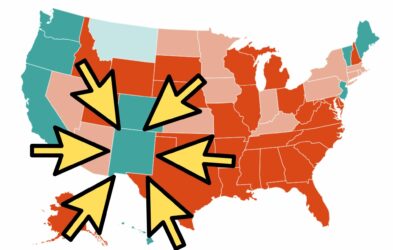This is a report from last Friday’s working session at the Maine Joint Standing Committee for Health and Human Services by our long-time supporter and volunteer, Valerie Lovelace. She is the executive director of the nonprofit It’s My Death, which she founded to honor a promise to her sister Dee, dying of cancer, “to teach others how to be with dying, how to speak and listen to one another the way we had learned to speak and listen, and how to go on even when afraid.” She is an inter-faith minister, ordained by calling, studying and practicing in the traditions of her elders and teachers, who are Native American, Christian, and Buddhist. She is a hospice volunteer, artist, and the parent of three adult children. She is also a homeopathic practitioner and a Reiki Master, retired from the U.S. Navy, and a trained EMT. She lives in Maine.
*
The 127th Maine legislature’s Joint Standing Committee on Health and Human Services approved LD 1270, An Act Regarding Patient Self-Directed Care at End of Life, on May 22, 2015 by a vote of 7 to 5 in a working session lasting less than one hour. Twelve of the committee’s thirteen members were present for the session.
The week prior, the Committee heard verbal testimony for several hours and received 44 pieces of written public testimony.
The bill, which will allow qualified terminally ill patients to ask for and ultimately receive a life-ending prescription medication from a physician, was first introduced April 7, 2015, and referred to the Joint Standing Committee for public hearing. Having passed that wicket, the bill must now pass sessions with the House and Senate.
Something quite special about LD 1270: it is the product of four bills independently introduced by different sponsors: Senator Roger Katz (R-Kennebec), and Representatives Roberta Beavers (D-District 2), Stephen Wood (R-District 57), and Patricia Harlow (D-District 36). None knew the others were working on a bill for patient self-directed end-of-life care. The four sponsors soon joined forces to submit a single bill, and the result of that effort is LD 1270, a strongly bipartisan proposal endorsed by six additional co-sponsors: Representatives Erik Jorgensen (D-District 41), Richard Campbell (R-District 130), Kathleen Dillingham (R-District 72), Brian Hubbell (D-District 135), Diane Russell (D-District 39), and Senator Dawn Hill (D-York).
“Ultimate Civil Liberty”
A particularly strong sentiment behind this bill is that of liberty. Two committee members spoke passionately about the end of our lives being a place of intimate privacy where “ultimate civil liberty” ought to prevail. That sentiment echoed through the room and I spoke with a number of folks afterward who repeated those words.
I have to be honest: the expression brought tears to my eyes, too. Having sat by the bedside of a number of dying people who spoke of the need for such a freedom, it was music to my ears hearing it from members of the committee.
Here in Maine, like other rural states, our legislators split their time between representation and full-time occupations elsewhere. Among committee members who supported LD 1270 are a physician, a family nurse practitioner, a healthcare program manager, a real estate broker, a human services provider, and a program manager for a statewide hunger relief organization.
Apprehension arising from testimony and the working session revolve around two central themes: conscious, voluntary choice for anyone participating (including pharmacists whose beliefs may be in conflict), and concerns for placing vulnerable populations at risk, including those whose health insurance may want to opt for the least expensive options.
Refuting Opposition Arguments
Insurance concerns arise from allegations that LD 1270 will ultimately lead to slippery slopes. Yet, 17 years of data and a lot of research say that isn’t so. Cases often cited in the argument are that of Randy Stroup and Barbara Wagner, both of Oregon and both of whom were initially denied on-going treatment for cancer by their state-operated health insurance plan. The two were notified by letter that their diagnoses qualified them in Oregon for all end-of-life services, including palliative/hospice care, home services, and/or an end-of-life prescription. The allegations, truthfully, point to problems in the 2008 administrative limitations of Oregon’s Health Plan, and not to problems in Oregon’s Death with Dignity law. The cases are typically cited out of context and generally don’t share the entire story. It is absolutely unconscionable that these two people felt harmed by their insurance company’s limitations. In both cases, the individuals did receive the treatments they sought after contacting media. And well they should have.
The obvious safeguard in these laws, of course, is that there is a lengthy, formal process that must be initiated by a qualifying patient’s request to their physician for a life-ending medication. Neither Mr. Stoup nor Ms. Wagner made such a request, either verbally or in writing, nor were they ever at risk for being forced to choose life-ending medication.
It feels certain that concerns will always arise with legislation like Maine’s LD 1270. I certainly hope so. Having the discussion is an integral part of the process to crafting careful legislation that ultimately will provide an end-of-life prescription choice for those who wish to have it available, and safeguarding for those who want to choose otherwise.
Featured image by J. Stephen Conn.

No comments.